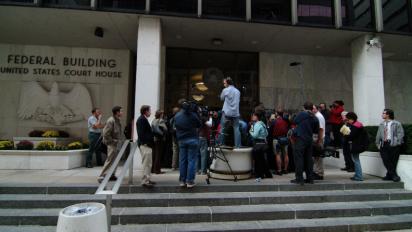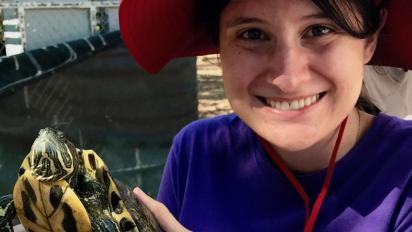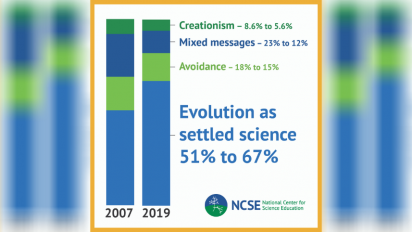Creating effective moments in science outreach requires a lot of work behind the scenes.
That’s why, as part of the NCSE Graduate Student Outreach Fellowship, our fellows receive training in strategic planning, program evaluation and grant writing. While these components might not seem as important as practicing direct outreach skills, they are crucial for preparing the next generation of science communication leaders to create and evaluate outreach that is inclusive and responsive to the community needs. Grant writing in particular is often an important part of academia, but students are usually given little, if any, formal training in that skill. So while many graduate students start the fellowship having written grants, they need help applying their skills in a new context. NCSE teaches our fellows to write outreach grants that answer four major questions:
- What is the problem?
- What’s a solution to the problem?
- How specifically will your work solve the problem?
- How will you determine whether your solution is effective?
We also help the fellows develop their ability to search for appropriate grant opportunities and assess programmatic fit, and prepare them for pre-submission communication with program officers and foundations. After receiving training through in-class exercises, each fellow writes and submits a grant to fund his or her outreach efforts during their fellow- ship year and beyond.
Our second cohort of fellows, all based at the University of Iowa, received grants this summer to further science outreach within the state. Briante Najev, an ecologist in the biology department, has been using the NCSE activity EcoStax to help children in eastern Iowa understand systems thinking as it relates to climate change.









